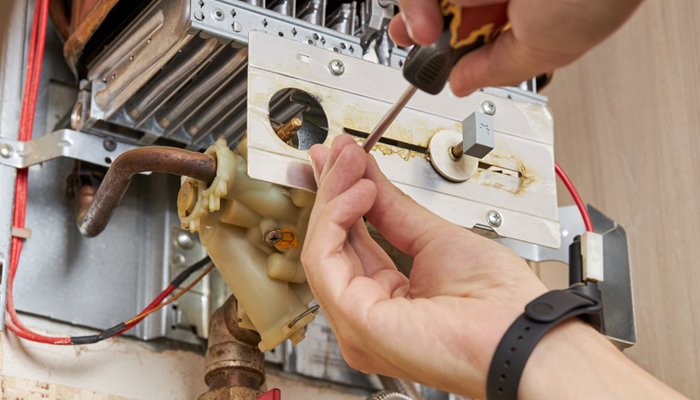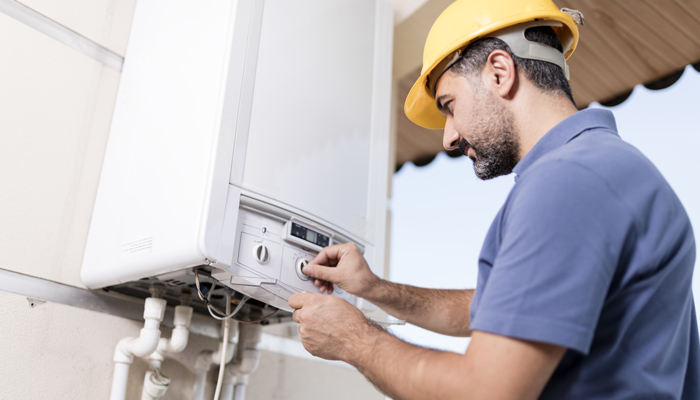Electrical Safety Best Practice: Is your property electrically fit?
In this guide, we look at best practices of electrical safety and ask if it is enough just to satisfy your obligations as a landlord, holiday home or rental property owner.
As a landlord or holiday home rentals owner, you will likely be aware of your responsibility with your insurance provider to have your home electrically certified or PAT tested, and the frequency that it is required – as a homeowner it isn’t always so clear. When it comes to what we should or shouldn’t be doing regarding electrical safety, there is a lot of information out there, some of it conflicting and confusing. In this guide, we look at best practice and ask if it is enough just to satisfy your obligations?
Do I need an electrical certificate for my property by law?
There are no specific laws pertaining to the maintenance of your electricity. However, there are regulations that do relate directly to the condition and upkeep of both fixed and portable electrical items in let properties.
For any new or altered electrical work, by law you must adhere to Building Regulations, Part P - notifiable works – which is designed to protect consumers by ensuring any and all major electrical work meets with the UK national standard BS 7671.
Any new electrical installation, replacement of a consumer unit, additions, or alterations to existing circuits in specific locations (such near a shower unit), is considered as ‘notifiable work’. With the exception of a few types of minor changes, all electrical work must be carried out and certified by;
1. A competent and trained person - in this case, a qualified registered electrician with an Electrical Installation Certificate or Minor Work Certificate that confirms that the work meets BS 7671.
OR
2. A qualified unregistered electrician who must notify prior to commencing and report any work to the local-authority building-control, with a Building Regulations Compliance Certificate that confirms that the work meets the Building Regulations.
It is important to ensure your home meets all Building Regulations for your property insurance policy to remain valid. For more information regarding Part P of Building Regulations in the UK, see the Electrical Safety First webpage.
How long is my electrical certificate valid?
Although the process of certification for any electrical installations will largely be the same, the rules and regulations for domestic properties vs those that are let do differ.
Homeowner – domestic property
Although there are no specific requirements to have your home electrical systems and items checked periodically, it is strongly recommended you have regular inspections in order to keep you, your family, and the property safe. Electrical certification body, NICEIC, recommend that you have an electrical installation condition report (EICR) carried out every ten years.
However, based on the condition of your circuitry and professional opinion of the electrical contractor carrying out the inspection, you may subsequently be recommended to have more frequent inspections, with certificates typically issued for three, five or ten years.
It is also commonplace for a certificate to be required during the sale/purchase of a property, particularly where works have been carried out to ensure it complies with Part P of Building Regulations.
Landlords
Recent legislation now means that there is a mandatory requirement for landlords in the private rented sector in England and Scotland, to have electrical safety checks carried out every 5 years, which will be reflected in your landlord’s insurance policy. As with the private homeowner report, you may be required to have more frequent checks depending on the condition of your circuitry and professional opinion of the electrical contractor carrying out the inspection. It is also recommended that you have additional checks carried out between tenancies to ensure the property meets the required standards so as not to pose any hazards to tenants.
Holiday home rentals owner
The safety requirements required for holiday lets do not have mandatory requirements by law. However, it is your legal responsibility to ensure that all appliances and fixed installations are safe and not hazardous to guests. It is recommended that, like landlords, you renew your electrical safety certificate every five years. With more frequent turnover of guests, however, you may wish to have visual inspections or PAT testing on portable items more frequently.
Even if you do not rent out your holiday home, most insurance policies will require that you have a valid electrical certificate for the property.
There are also warning signs of faulty electrics that you can look out for during your own inspections that would indicate whether you require further checks by a professional electrical contractor. You should never attempt to carry out any electrical works yourself and always employ the services of a qualified and competent person.
- Scorch marks on or around any fixed electrical outputs could indicate a number of things, from a faulty portable item plugged in, to faulty wiring within the casing. If this is the case, decommission the outlet until further inspections can be carried out by a professional.
- As above, if you notice an electrical output is warm to the touch, there is likely a fault with the outlet (or appliance using it) and should be checked by a professional.
- Flickering of lights can indicate a number of issues – start by unplugging all portable electrical items (excluding fixed appliances, such as fridges and ovens). This will help determine if there is a fault with the lighting circuit or whether a faulty appliance/ system is being overloaded. Each circuit loop is only designed to supply a maximum output depending on the number of fixed outlets.
- Visible or exposed wiring – check any electrical cables to ensure there are no loose or exposed wires, especially around plugs as these can work loose from the connecting terminals over time. Decommission any portable items with exposed wiring until this can be fixed. Visible or exposed wiring in the installed or fixed electrics should be checked by a professional urgently.
- If you find a fuse is tripping or you are replacing light bulbs frequently, this could also be a sign of an electrical fault. First check that you are using the recommended wattage bulbs, but if the problem persists, you should consult an electrician.
The information provided in this article is correct at the time of publication, however, is not intended to be an exhaustive list and if in doubt you should always seek advise from a qualified electrician.
What are the most common electrical safety risks?
Let’s first start by looking at the risks of having poor or faulty electrical wiring and/or electrical items. Most likely, the first things that spring to mind when thinking of the potential hazards around ‘dodgy electrics’ are fire and electrical shocks. While these are the most hazardous but real risks, there are others that can lead to costly or inconvenient outcomes, such as overloading that damages circuit wiring. This can lead to expensive replacement of electrical items, or even a prolonged period without electricity whilst disruptive re-wiring is carried out.
Get home, landlord or holiday home insurance with Towergate
Be sure that you follow the best practices of electrical safety measures to avoid any negative outcomes. These risks are only heightened when dealing with Specialist and Unoccupied Properties.
It is also essential that you take out Home, Holiday Home or Landlords Insurance to provide protection in the event that something goes awry. It is important to review your insurance policy to ensure that you are aware of restrictions that apply to cover and comply with any conditions that may be applicable.
About the author
James Cooper is a respected industry leader with around 10 years' experience in the home and property insurance sector. He works across a broad range of insurance product and policy development and delivery, including product development; customer sales and marketing; and P&L accountability.
Date: June 27, 2024
Category: Home and Property







